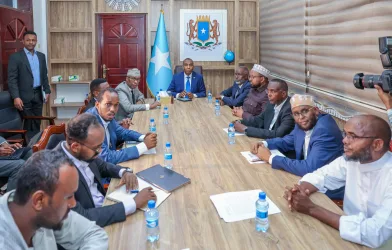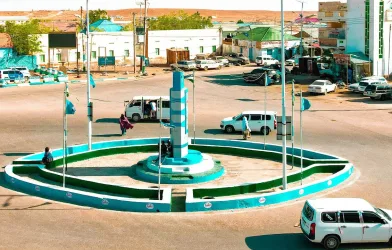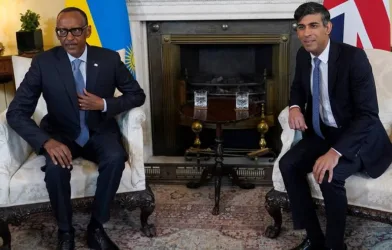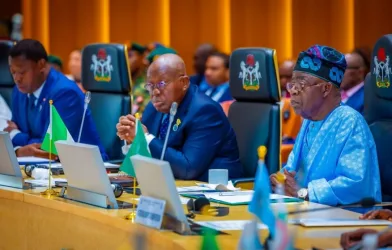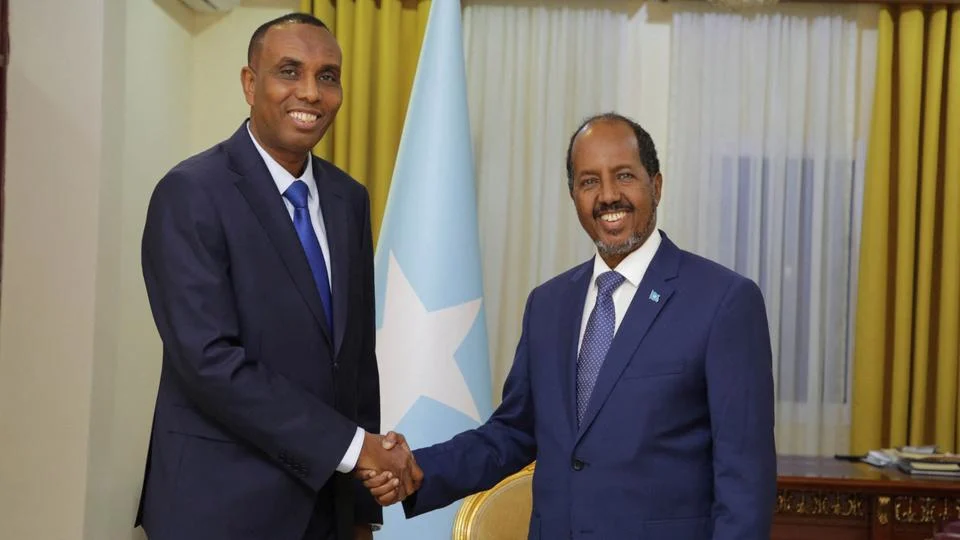
The recent unveiling of Somalia’s new council of ministers has received a sharp rebuke from progressive political analysts and pundits alike while various stakeholders have expressed their grave concerns over the flawed cabinet selection process that many believe can have serious implications for governance, security, reconciliation, and nation-building.
After five tumultuous years under the previous administration that brought the country on the brink, Somalis expected a political renewal in which the top brass leadership will steer the country on the right path through good governance and functional institution-building processes that can effectively restore peace and democracy and usher in an era of stability and prosperity.
But going by the recent cabinet appointments, the country risks sliding down the dreaded path of factionalism, divisiveness, nepotism, cronyism, and endemic state corruption.
For a nation to prosper, the head of state or government must select the right set of honest, competent, motivated cabinet members representing the cream of society. It is widely held that the making or breaking of any given government begins with the cabinet formation process.
If the leader at the helm gets it right, he or she can successfully lead their adherents across the Jordan River and set upon the path to Canaan unimpeded. If the leader gets it wrong, his followers will be left with a perilous and treacherous precipice to climb, as high as Mount Ararat, with little hope of making it to the Promised Land.
To the utter dismay of outraged Somalis, the new cabinet mainly comprises individuals
belonging to the hall of shame including ex-warlords, terrorists, profiteers, lorry drivers,
fraudsters, and a coterie of unqualified, incompetent, shady characters who cannot be entrusted with national duty.
When a clique of inept politicians is left to occupy the highest offices of the land, the corridors of power will become riven with corruption, greed, selfishness, short-sightedness, and lack of convictions, indecisiveness, warmongering, mean-spiritedness, lack of empathy, sexism, and paranoia.
Unconscionable leaders surround themselves with people who don’t challenge their decisions or opinions, but rather enable them to do whatever they want. That is exactly what President Hassan deliberately practiced.
The culture of yes men that has bedevilled Somali cabinet circles for decades is now being entrenched by the current regime that prefers a dysfunctional leadership landscape, which will make it easy for the President to call the shots without being held accountable by an assertive, reform-minded cabinet ministers.
When a leader surrounds himself with ‘yes men’ and then rewards them for constant agreement, his team ‘will eventually fall short of its collective intelligence, creativity, and ability to innovate.
In the “yes men” political theater, an Imperial President will be accorded a free hand to pursue parochial interests at the expense of national development. A President directing a circle of “yes men” will not only sabotage the national reform agenda, but also deny the resultant moribund government fresh ideas, objectives, perspectives, and diversity of viewpoints that can bring a myriad of solutions to the cabinet table.
The corruption of yes men and their master undermines the credibility of the public sector, erodes trust in government and its ability to steer a country to achieve high economic growth and shared prosperity. It often weakens the impact of public service delivery, adversely affecting all citizens especially the poor. The selection of a political herd principally interested in pleasing their boss while benefiting from rent-seeking and state patronage undermines any prospects for elusive good governance in Somalia.
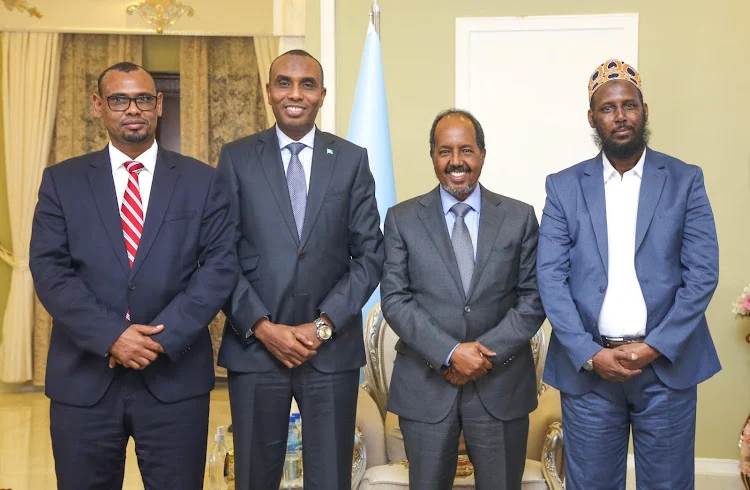
The most damaging of all appointments, is the naming of Mukhtar Robow, Al-Shabab’s former second in command, and long-time Al-Qaeda, aligned terrorist as new minister for religious affairs and endowment.
His elevation to cabinet is an affront to the countless of Somali families who lost loved ones to Al-Shabab’s terror attacks. It further undercuts efforts to end impunity in Somalia as well as the commitment to human rights and justice. It sends the wrong message that mass murderers can have their place at the table even at cabinet level.
Some observers wrongly assert that his appointment may potentially help in the war against extremist ideology and propaganda. But they forget that there are many anti-terror, Somali religious scholars who have done a great job debunking Al-Shabab’s extremist ideology, some of whom have paid with their dear lives in their pursuit of such a noble cause.
Somalia would have better been served by the appointment of a non-violent, peace-loving cleric of high repute to the religious affairs docket rather than appeasing and rewarding an ex-terrorist. If Robow is expected to wage an ideological war targeting Al-Shabab, he should be permitted to do so as a private citizen, not as a senior government official.
A closer look at the recent appointments would reveal that a number of the appointees have been deliberately placed at the cabinet to act as Federal proxies ready to be deployed to subvert the work of regional state leaders.
The scheme is to allow Villa Somalia to have a stranglehold on Federal Member States (FMS) while concentrating state power in the hands of the President. It is a sinister ploy taken out of the all too familiar Farmajo playbook that contributed to tense Federal-State relations in the past, often culminating in costly military interventions aimed at facilitating Villa Somalia’s power-grab.
The sudden shift toward a new divide and conquer strategy is a political gambit by President Hassan to weaken and exert undue control over FMSs, to eventually curtail their constitutional and collective power to challenge and ward off Villa Somalia’s manipulative politics.
The dubious move has been met by an immediate blow-back as a number of Federal Member State leaders have started aligning themselves with Ethiopia to stonewall any Villa Somalia encroachment on their respective jurisdictions. It has left Somalia vulnerable to external forces ready to exploit chaos and divisions created by the Damjadid new rogue elite.
In confronting the agenda of the yes men solely serving the interests of the new sheriff in town, Somalis must reject the debasement of public office and call for practices that advance good governance, transparency, accountability, and the rule of law. A lesson in good governance can serve as deterrent against a corrupt political class masquerading as national leaders.
According to the United Nations (UN) definition, good governance refers to a ruling system that is participatory, consensus oriented, accountable, transparent, responsive, effective, and efficient, equitable and inclusive, and follows the rule of law.
More broadly, the UN’s Economic and Social Council has identified eight principles of good governance as listed below.
Participation
Participation by both men and women is a key cornerstone of good governance. It could be either direct or through legitimate intermediate institutions or representatives. Participation needs to be informed and organized. This means freedom of association and expression on the one hand and an organized civil society on the other hand. 1′
Rule of law
Good governance requires fair legal frameworks that are enforced impartially. It also requires full protection of human rights, particularly those of minorities. Impartial enforcement of laws requires independent judicial and legal systems.
Transparency
Transparency means that every policy taken and implemented by the government must be carried out under existing regulations. In addition, there must be a guarantee that any information related to the policy can be accessed by everyone, especially those who are directly affected by the policy.
Responsiveness
Public institutions and processes must serve all stakeholders within a reasonable time-frame.
Consensus oriented
This fifth principle is related to the decision-making process. When the decision-making process cannot accommodate everyone’s wishes, then at a minimum, the decision must not be detrimental to the public good nor harm anyone.
Equity and inclusiveness
A society’s well being depends on ensuring that all its members feel that they have a stake in it and do not feel excluded from the mainstream of society. This requires all groups, but particularly the most vulnerable, to have opportunities to improve or maintain their well being.
Effectiveness and efficiency
Processes and institutions must produce results that meet the needs of society while making the best use of resources at their disposal. The concept of efficiency in the context of good governance also covers the sustainable use of natural resources and the protection of the environment.
Accountability
This is a key requirement of good governance. Not only governmental institutions but also the private sector and civil society organizations must be accountable to the public and to their institutional stakeholders. In general, an organization or an institution is accountable to those who will be affected by its decisions or actions. Accountability cannot be enforced without transparency and the rule of law.
Finally, good governance is a cornerstone of reconstruction and sustainable development. In the absence of a responsive government, the Somali civil society must step up and play its essential role as a building block of development and national cohesion.
Civil society organizations and academics across the country and abroad must monitor the actions of errant public officials and hold the new government accountable. They should engage in advocacy in an ongoing basis and offer alternative policies that can address core issues and strengthen public institutions.
They must challenge the corrupt and nepotistic elite as nurtured by President Hassan, defend citizen rights and work to change and uphold social norms and behaviors. Somalia’s hope now lies with its burgeoning civil society, and it is time to organize and agitate for good governance, change and social progress. It is now or never.
By: Hassan Hamze Mohamud
Mohamud2022hassan@gmail.com


